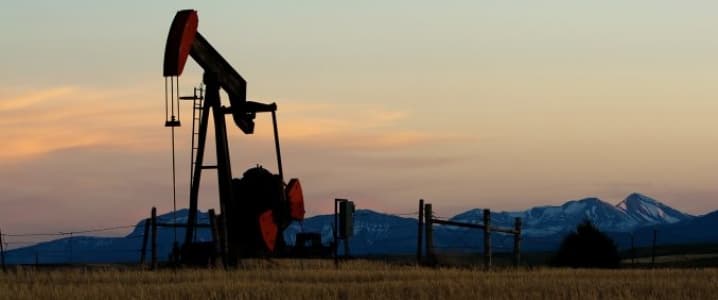Oil producers could see a $10 to $15 spike in barrel prices if the world’s energy leaders agree on a freeze in new output next week, Venezuelan Oil Minister Eulogio Del Pino told Union Radio on Tuesday.
"These are decisive days," Del Pino said of the time period leading up to the informal meeting between members of the Organization of Petroleum Exporting Countries and Russia on September 28th in Algiers. The minister heads the state oil company PDVSA, which is in desperate need of a hike in fuel revenues and favorable financial ratings to fund imports of consumer goods and medical supplies for its citizens and to keep the socialist government’s public services afloat.
During the same interview with the Caracas-based radio station, Del Pino called international credit rating agencies, such as Moody’s and Standard and Poor’s, “professional speculators” for their recent evaluation of his company’s $7 billion bond swap proposal.
On Monday, Standard & Poor said PDVSA's swap plan would be "tantamount to default" if it were carried out.
Another evaluation from Moody's said "if executed as planned, (the exchange) would be a credit positive event ... reducing the risk of an immediate payment default."
The negative reports will likely cause potential investors to shy away from participating in PDVSA’s last hope for new financing before facing default later this year. Related: Elon Musk’s Hyperloop Is Heading To India
Next Wednesday, oil ministers representing countries that produce 55 percent of the world’s oil output will hold an unofficial meeting on the sidelines of the International Energy Forum.
For the sake of Venezuela’s economic future, Del Pino hopes the countries gathered will quickly reach an agreement, triggering an extraordinary meeting during the IEF, which would allow the ministers to sign off on the deal then and there.
The Nigerian head of OPEC, Mohammed Barkindo, confirmed the possibility of convening an official meeting depending on the proceedings of next week’s informal meeting.
If the countries do not agree on convening an extraordinary meeting, the issue would be delayed, once again, to the next official OPEC meeting on 30 November at the bloc’s headquarters in Vienna. By then, it might be too late to save PDVSA.
Algeria needs a halt in production just as badly as Venezuela does, but its North African neighbor does not seem keen on cutting outputs.
Libya’s oil production jumped by more than 70 percent this month, from roughly 260,000 barrels per day in August to 450,000 barrels per day in September, according to Bloomberg. The war-torn country hopes to build on that momentum with the return of some major export terminals that have been sidelined for nearly two years, including one of the largest. Related: Long Term Consequences Of The Oil Price Crash
Iran’s commitment to reaching a deal is shaky at best as it builds capacity after the lifting of international sanctions against its oil industry in January. Saudi Arabia’s refusal to allow Iran an exception to a well-publicized output deal in April caused its last-moment failure.
Iraq, the second-largest OPEC crude producer after Saudi Arabia, has been pumping out crude at higher levels “because Iraq is still below what it should produce,” according to Prime Minister Haider Al-Abadi.
Saudi Arabia, the de facto leader of OPEC, has notoriously been increasing output to prevent Iran from regaining its market share while pressure for a production freeze mounts.
As the oil price crisis closes in on two years at the IEF summit, the conflicting impulses of OPEC’s most powerful and most vulnerable players jeopardize the short-term future of oil prices and the economic power of the cartel itself.
And if the swap deal falls through and OPEC and Russia can’t agree on an output deal in the near future, saving the Venezuelan economy from the bankruptcy of its main government revenue-generating industry will likely be impossible. That holds true even as oil prices make a belabored recovery over the next three years.
By Zainab Calcuttawala for Oilprice.com
More Top Reads From Oilprice.com:
- Russia And Saudi Arabia Playing A Risky Game Ahead Of OPEC’s Meeting
- Why Oil Prices Can’t Stay Low For Much Longer
- Market Update: Oil Crumbles After Saudis Pull The Plug


















